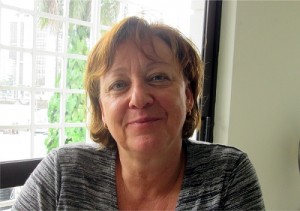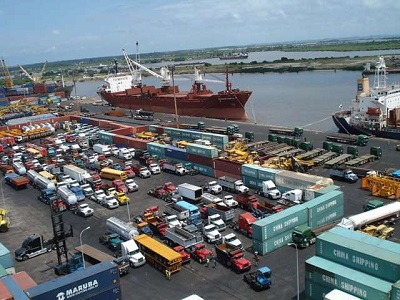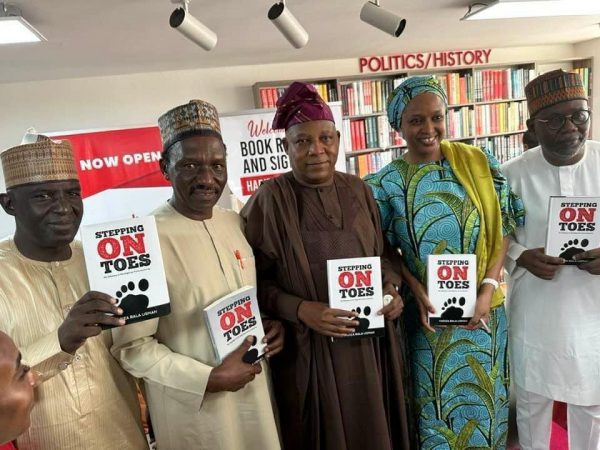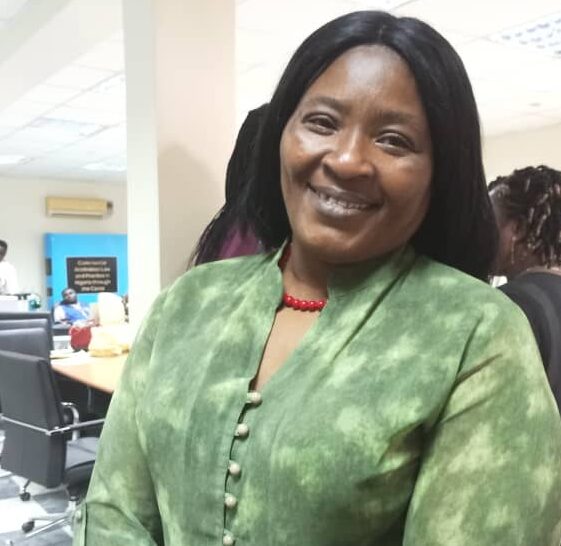Why Nigeria Should Embrace Embedded Energy For Power Supply

Mrs Barbel Freya is the Head of Renewable Energy of the Delegation of German Industry and Commerce. In this chat with Emeka Chukwuaku, she explains what embedded energy generation is as related to renewable energy and calls for more awareness to this energy source and advises that Nigeria should embrace it as it is the trend in energy generation around the world. Read on.
Recently, your organization organized a seminar on Embedded Power Generation.
Can you briefly tell me what it is all about?
Embedded power generation is the power produced outside the grid but connected to a working system. The Government privatized the whole power sector; the only place the government is still in is in overseeing it without direct involvement. The power is distributed from among eleven distribution companies
Generation. Can you briefly tell me what it is all about?
Embedded power generation is the power produced outside the grid but connected to a working system. The Government privatized the whole power sector; the only place the government is still in is in overseeing it without direct involvement. The power is distributed from among eleven distribution companies
(DISCOs) in the country. The DISCOs need enough funding to perform optimally, they realize that the burden is too high, they cannot make the whole thing work all by themselves, and they need support. The energy supply is not enough, now they have taken over, there are so many shortcomings; the transformers are from the 1960s, distribution lines are cut down, poles are falling down, people don’t want to pay, so the DISCOs cannot run the whole thing all by themselves, they are looking for investors who are ready to supply them with power which is called embedded generation. It is usually below 20mw and it gives the distributor the power to supply a certain area. They are looking for people who are ready to invest or sell the power to the distributors. This is called embedded generation.
Your organization is partnering with the DISCOs and according to the representative of Kaduna DISCO, several formations in Kaduna do not pay electricity bill. How do you plan to overcome such challenge?
That is totally a new topic, I am not involved in that, that is none of my business but I must confess it is something I have not thought about because it is not in line of my work. My work is not with the DISCOs, I am working for the delegation in order to assist German companies to tap into Nigeria. Germany has a very well-known track record of high standard on renewable energy; they also have the technical know-how and information which they are ready to offer.
We are in the process of changing from the coal and nuclear power into renewable power. We have a target to change fully into renewable power and there is high possibility that it will work. We have a real solid energy behind; we are in the process of changing from nuclear power into renewable. We have a target to change fully into renewable power and there is high possibility that it will work. We have a lot of Biogas, wind, solar in the country, I think worldwide, we are among the first who have been implementing this to such an extent and so I think we can bring a lot to Nigeria from our knowledge.
Do you think Nigeria is ripe for this?
I think the private sector is ripe for it, it is very open. Nigeria took an enormous step towards privatizing the power sector. I remember last year we had a seminar on how to finance renewable energy project but I found it very difficult to see people who are ready to buy into the idea. Only one local bank came to the event. Now, with this event just eight months later, people are scrambling to come to the event. They all see the need to attend. Funding from international bank is coming into the fray and starting to give loans to local industry at reduced interest rates to invest in renewable energy.
I think there is a big change. In Nigeria, you can do anything if you have the right mindset. Another important issue is the training of the people. You cannot only implement solar power plants but you also need to train the people. It is one of the problems of the DISCOs; they don’t have enough qualified personnel. I heard that the last time PHCN trained its workers was 25 years ago.
All those who have been trained are on the verge of retirement. For the last 25 years, nobody has been trained so, you can imagine the status of the power sector in Nigeria if untrained people are to look after it. I think that is a big challenge, you cannot just implement new technology and bring in new untrained personnel. There is also maintenance; it is a big challenge here. I think anything can be done in Nigeria.
On that day, Mrs. Kukoyi said that they have the target of 1000mw of more electricity in 2019. Do you share her sentiments?
They talk about 4000mw for the country, but it dropped down to 2500mw in April then to 2000mw partially. If they say that now they have 3000mw or 4000mw but will increase by additional 1000mw before 2019, I think it is possible, I believe so. I think with the speed of financing and loan facilities for big investors, I believe there is a possibility to step up to 1000mw more electricity in 2019.
I think Kanji dam can step up its power supply, out of its four turbines only one is working at the moment if that problem is handled I think it will step up its power supply but it’s very difficult to ascertain how things happen in Nigeria from what is written in the newspaper to what is really on ground. Last year, we have the European-Nigerian exhibition here in Lagos, one panel was on renewable energy, we have a German company that made a presentation to install a solar plant in Adamawa, I remember it was last October, it seemed as if the project will kick-start in January but up till now it is unfortunate that nothing has happened and of course there is security situation in Adamawa but if it eventually installed in Adamawa it may reduce the number of young men joining Boko Haram.
There is sun in the north; they have a lot to give when it comes to renewable energy, a solar plant there can cater for half of the country. I think it is an enormous step the country took in privatizing the power sector. It is a totally new field for the government and the private sector. It takes time to work, it is a gradual process.
Can this innovation minimize the power problem in Nigeria?
I think it will go a long way in minimizing the problem but it can’t be achieved within a year or two, it is a long term programme and people too have to change their mindset. The banks too have to minimize their interest rates so as to help investors. To produce 1mw is approximately $2million, so you can imagine how much loan the investors have to get. We are talking about up to seven years, not just one or two years. So the banks have to bring down their interest rates to encourage investors. People haven’t got used to this new development. So, everyone has to pull their resources together to make it work.
The relevant authorities have to get people involved, create more awareness especially on how to obtain a loan that much. The bank has to first see a workable business plan before they can release funds for any investor. Moreover, it is part of my job here too, if a Nigerian business man approaches me that he will like to put up a solar plant maybe somewhere like Ibadan or where there is more landmark, he can come to my office and tell me what he wants to do and I can give him contacts in Germany where he would be able to import the technical portal, the solar panel and I can give him address where he can get the technical know-how and can connect him to banks here and international banks who can give him a loan.
We have the DG bank, the German International bank, the give loans to the private sector with low interest rates, they have renewable energy department, so if a Nigerian business man wants to set up a solar plant, he can get a loan with a very considerable interest rates especially when it is a huge amount. There are possibilities now; people should get acquainted with our operations here. I have a colleague who runs a vocational training programme,we are collaborating with the German technical corporation, they are in Abuja. It is a 25 million euro programme, it is only focusing on energy efficiency and renewable energy training in Nigeria.
It started last year. 9 million Euros came from the German government and 12 million Euros from the European Union. So, it is a German and European Union programme which focuses on training individuals on renewable energy. NAPTIN is the collective name. They are now privatized; they have a very active director in Abuja. It has a lot of international support. They have about six training centers all over the country, and have started training personnel’s for the upcoming energy power in the country.
Do you think the DISCOs will be able to give this the wide coverage suitable, you just launched this in Lagos, what about other states?
It is not just in Lagos, it is all over the country, we have 11 DISCOs. I think what the DISCOs should now do is to look at the already existing system on ground and start from there; they are also trying to initiate a process where big power generators and companies will sell their excess electricity already into the distribution lines. The DISCOs are looking for smaller private firms to tap into this venture so that everywhere even the most rural areas will be connected to the grid. The DISCOs cannot do the job alone especially taking it to the rural villages that is why private investors should come in.
They may even start with small hydro-power which can be put into the stream and the water will be providing the power day and night. It can produce five kilowatts; it is not just the DISCOs alone who can do it. It gives a lot of space for entrepreneurs to come into the fray provided they meet with National Electricity Regulated Commission( NERC) regulations, so more awareness should be created so that people who want to be part of it will know what they should do and what they stand to gain if they sign up.
How will this benefit the common Nigerian man? Nigerians pay bills they do not utilize and sometimes do not pay for the ones they utilize. How can that problem be solved?
There seems to be a lot of problems in the distribution of meters, I think from my experience in Nigeria that metering is the best way to pay electricity bill. It will be in everybody’s interest to provide proper billing. So, the DISCOs have to get a proper working meter. If these meters are put in place, the people will now know how to use their electricity right. They won’t have to leave their AC and other electrical appliances on anymore when they go out knowing that they will be incurring bills.
The people will become more aware and careful of how they consume electricity. I think it is the best method for the consumer to have value for his money and for the producers to get their money. But now the problem is that they charge according to the lines you have, the bring estimated bills, because people do not have meters or the meters are not working. Some years back, the meters were so costly that many people could not afford it. So, people feel cheated as a result of the bills they bring, they feel that they have to cheat back too by using electricity without due payment. So, the Discos have a lot of work to do, when they bring electricity to a community, they have to talk to them about what it is involved.
The community has to know and be convinced that it is no longer the old dispensation of things, that things have really changed and now for the better. The Discos have to provide telephone numbers, customer care centers to care for the needs of the costumers. Remember one guy compared this with the privatization of the telecommunication sector. When it started the bills seem much for the consumers but with time, they adjusted.
So, the Discos have to put these things in place, I think if they do this, there won’t be much problem, not that there won’t be problem because in every country there are people who do not want to pay their bill. It is a bit complicated in Nigeria because people are poorer; they feel that the government should do more to help alleviate their plight. People have to understand that this is no more the government; they should understand that they have right as consumers and also have responsibilities.
How affordable will it be?
I cannot say anything to that; the government is working towards subsidizing the tariff. They are using where people live as a standard for that. So in the less wealthy area the tariffs are lower and in the more wealthy area it is higher. People who are living in the Island, Lekki, Ajah are considered to be earning higher income, so they pay higher. It may be unfair for poor people who are leaving in those areas but that’s the only way the government will carry everybody along. Frankly, I do not know how the tariff will be. But there is something you have to think about. If you look at how much people pay for generator fuel on daily bases.
Some people think that we who are living here on the Island enjoy more power supply than other people living in less wealthy areas. It is not true; the power supply is the same. We do not have more than three hours power supply each day, we are 21 hours on generator imagine how much that cost on diesel. If you have 24 hours electricity supplies, even if you pay much, you will never pay up to what you pay on diesel, so if we can pay for diesel now, we can also pay for 24hours electricity bill. In Germany, I pay an approximate of N10, 000 per month for a two-bedroom flat on a 24- hour power supply, permanent electricity, no power cut for the last 50 years. I think the tariff will depend on how the Discos are able to stabilize the power.
How stable can this power supply be when it eventually comes?
It won’t come like that, I think it is a wrong perception; it can only continue to improve, may be from 3 hours to 6 hours then to 12 hours until maybe 24 hours. It will not just come, it is a gradual process. This is just about a year the power sector is privatized, I think in the next 5-7 years the power problem in Nigeria would have been reduced to the barest minimum. It will improve business and enable more to shoot up. More awareness is needed especially from the press to enlighten people more on this innovation.







